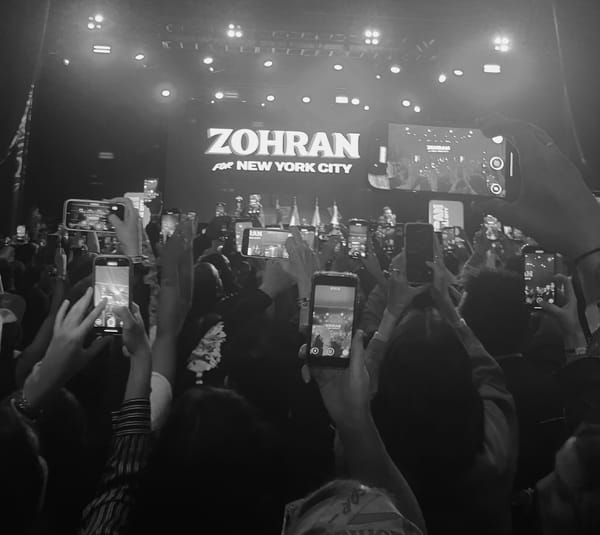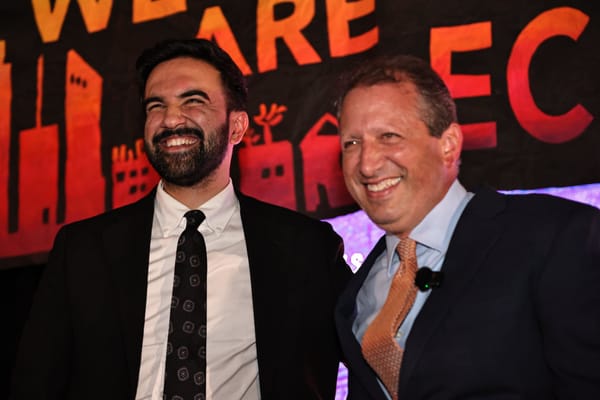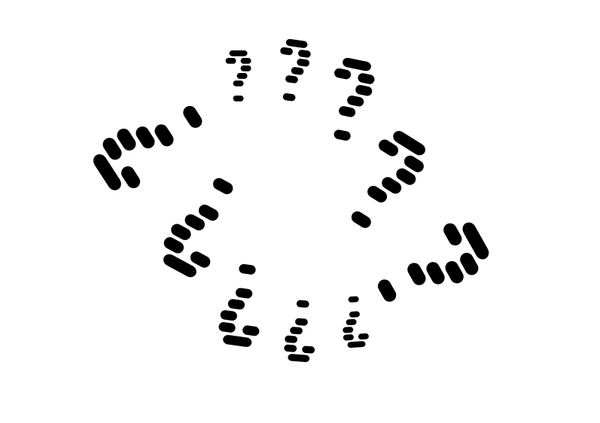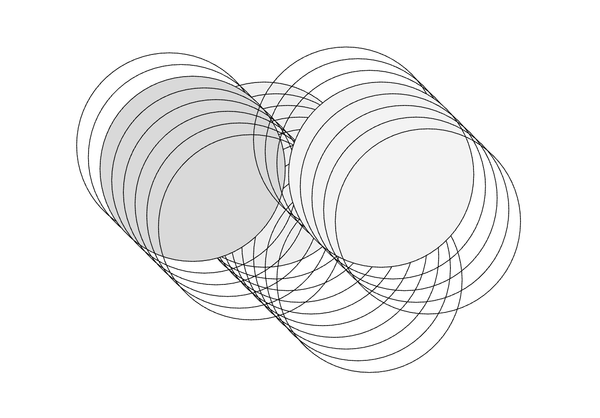Bravery is not complicated
"No Other Land" and the State of the Union
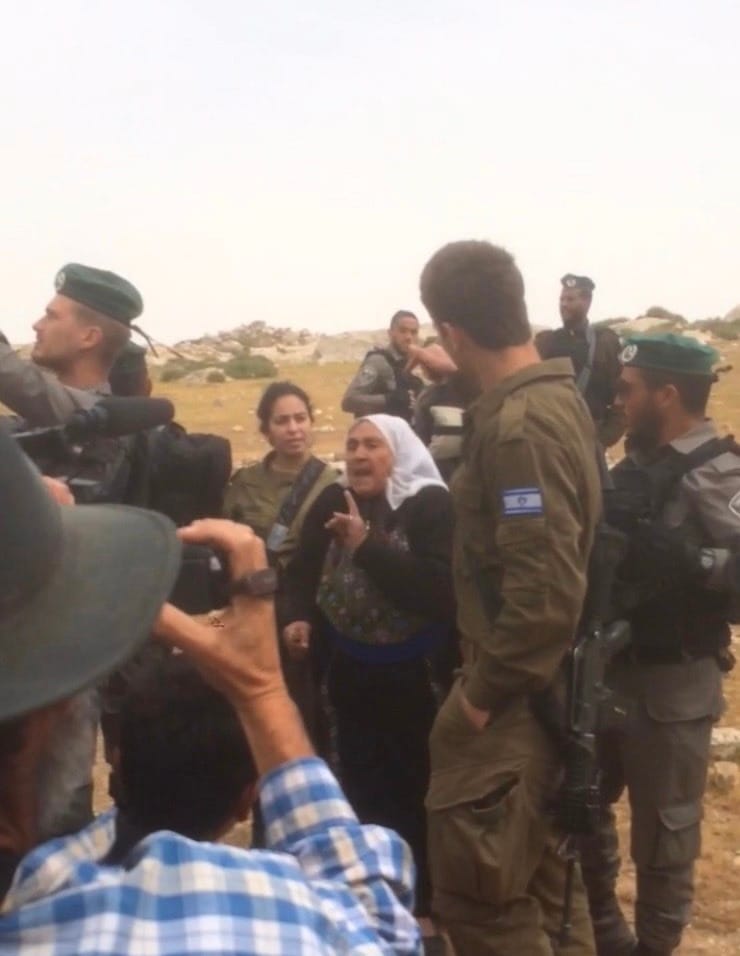
It’s the morning after Trump’s address to congress, the morning after I went to see No Other Land instead, and I’m thinking about bravery. I didn’t intend it this way, but having caught up on the night’s event in DC, I couldn’t have planned more exact counterprogramming.
Of course we could correctly psychoanalyze the fear and insecurity at the root of Trumpism here and Jewish supremacy there, but I am more interested in the other side of what I saw last night – who I saw demonstrating bravery, who I saw running away from it, and how stunning the space in between.
No Other Land is about the Israeli government’s decades-long attempt to forcibly remove Palestinian residents from the area of Masafer Yatta in the West Bank, but the footage is principally drawn from events occurring between 2019 to 2023. Through visuals largely of one community in one point in time, the film communicates the general reality of Palestinian life in the occupied West Bank: restricted rights, underclass status, home demolitions, deprivation of water and electricity, raids and arrests, settler attacks, and military violence. The vast majority of the film is spent waiting for the Israeli military to come, documenting their destruction, and then rebuilding from it. But it also, in front of and behind the camera, documents what it means to resist and reject that violence.
Basel Adra, one of the co-directors, is a resident, documentarian, and activist in Masafer Yatta. Adra, his family, and his community continually put their bodies in the way of soldiers and vigilantes trying to remove them from their land. Their actions are not easy but they are simple: they stand or sit in the way, they take video, they march, they hold on to their possessions as long as they can, they speak shame to their oppressors, they rebuild. The action can affirm their existence, if not find success; the consequences can be terrible.
The film is not about Yuval Abraham and Rachel Szor, the Israeli co-directors, but they are doing something simple, and hard, too. In the West Bank, their identities afford them greater physical and legal protection, but not immunity from violence; in Israel itself, they face ostracization and state oppression from an illiberal and vengeful society that seems them as traitors. But they know that what is happening so near them in their name is wrong and is being covered up. So they go there; they look at it; they share it; they try to help to rebuild.
When the film ended last night, the entirely packed theater sat in shocked silence through the credits before slowly filtering into the hallway. I have never experienced anything like it. I do not believe the shock was about new information, at least certainly not for me: I have similar videos on my own phone, since I was fortunate to to briefly visit this region in the summer of 2018 as part of a delegation to learn from and connect with Palestinian and Israeli activists. The still on this post is taken from that visit, one where I saw an elderly Palestinian woman sit down on her land instead of being bullied by young Israeli soldiers armed for battle. I remember feeling stunned then, and I believe that the same visceral clarity came to a few hundred people in Brooklyn last night: this is what wrong looks like, this is what right looks like, this is what it means to clearly act for right against wrong, what bravery is. There is nothing else to say.
And then I checked-in on our supposed leaders here. The vast majority of the opposition party attended Trump’s address to Congress like it were any other year. Some had little signs printed, some wore stickers or a different color than they normally would; a few walked out in silence; a few others skipped and “live fact-checked” online; exactly one, Rep. Al Green, protested vocally and was heckled by Republicans on his way out as his colleague sat motionless. Particularly in the context of having just seen a young boy living under occupation stand up between Israeli soldiers and his father, it all felt so deeply absurd and pathetic. Democrats seem intent on contorting themselves around the most straightforward expressions of opposition and bravery available to them. If democracy is at stake, the halls of congress are the most literal site of contestation. Opting out or remaining silent is conceding the ground: it says that those halls, that democracy, is not worth fighting over. If congress matters as a branch of government, be there to fight for it; if the President is a brazen and dangerous liar, contest his speech. I wish it weren’t the case, but the simplicity of opposition increases in accordance with the scope of authoritarianism – as the communities of Masafer Yatta know well, gathering, documenting, building, simply being becomes an act of resistance.
On that delegation in 2018, an Israeli activist had described how we should think of Israeli society as what American society would be like if Trump ruled for decades – what beliefs might be dominant in a culture if hate and fascistic ideology were communicated and legislated to generation after generation. I think we are starting to see that kind of society, as Trump and the GOP drag the public against immigrants, trans people, and democratic values while Democrats try to read the wind instead of creating it. I don’t believe that doing brave things is easy or comfortable, but I was reminded last night of how people still do brave things under much, much harder conditions than we face here. I think, however, that they rely on the same resource we have at our own disposal: a conviction that people deserve dignity, justice, and equality. Then they act in ways that clearly and directly expresses that conviction. I had some hope our elected leaders would find that by themselves, too, but I’m starting to think we will have to show them. Seeing No Other Land is a bracing agitation to figure out how.
